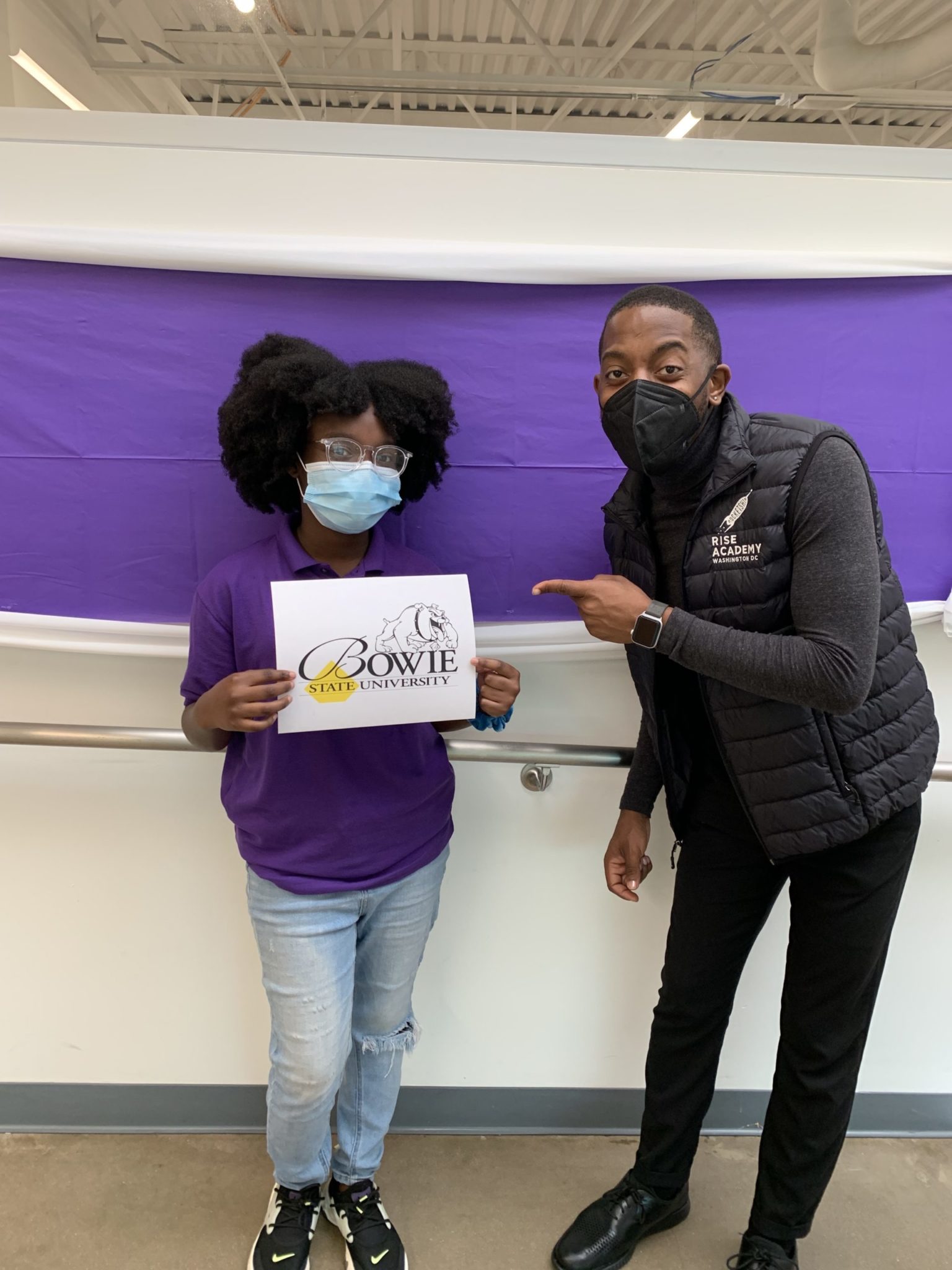
Celebrating HBCUs With My Black Students
By Corey Lewis
“I want to go to an HBCU because I’m Black and these schools are run by Black people like me.” That’s what Brooke Fairley, a 5th grader, told me recently.
College readiness has become the go-to buzzword in K-12 education. Schools across the country emphasize and talk about college readiness curriculum, and how it is important for kids to graduate college-ready by high school so they succeed in their postsecondary education and beyond.
While many of the usual suspects are discussed in these conversations with students and families (local state schools, Ivy League schools, private schools), there rarely is enough emphasis on the hundreds of strong Historically Black College and University (HBCU) options available to students across the country. But HBCUs have been around for hundreds of years, serving tens of thousands of primarily Black students every year.
Rocketship Rise Academy has an almost 100% Black student body. As a Black educator, I know the importance of providing both mirrors and windows to my Black students at every step of their educational journey. Running a culturally-responsive school requires that I tailor every part of our curriculum in a way that meets our students and families where they are – and that includes the way we approach college readiness.
For many of my students, HBCUs would be great fit institutions to complete their postsecondary studies. With recent Gallup poll data showing that Black graduates of HBCUs are more likely than Black graduates of other institutions to be thriving in a number of areas of their lives (particularly in areas like their financial well-being and sense of purpose) compared to their counterparts who went to non-HBCU institutions. Data also shows that Black HBCU graduates are more likely to strongly agree that their colleges prepared them for life after graduation (55%) than Black graduates of other institutions (29%). While not every Black student who passes through our doors would be best served by an HBCU for their post-secondary education, I would be remiss in not ensuring every one of them knows that they are a solid, attainable option. Personalized learning also means including culturally-responsive content.
Growing up, HBCUs were never really emphasized to me as postsecondary options, and now as an adult, I find myself having to learn more about these schools to benefit my students. I want to make sure our students and families have all the facts and know what’s out there and what’s possible. This is why my team and I have purposefully incorporated HBCU spotlights in the college readiness curriculum at Rise. Our curriculum includes all the facets of a robust college readiness program – strong language and rationale around college, personalization, information on what it takes to get to college – so that we build a college-ready mindset at home with our families, not just our students. Research shows that having conversations with the whole family early around college and what it takes to get there pays off. At Rise, HBCUs are celebrated, acknowledged, and put to the forefront.
Starting last year, I shifted the focus of our college spotlights at Launch to HBCUs only as a way of letting students and families learn more about these different schools. For the very first launch this year, I introduced HBCUs, talking about what they are and why they are important. My team and I are super thoughtful and deliberate around which schools to highlight, choosing HBCUs that are lesser-known and where myself or other faculty members might have a personal connection to.
For the first spotlight this year, we chose to talk about Alabama A&M University because of some personal connections to the school – I’ve had family members attend there, and one of our teachers, Ms. Harrison, is a proud alumna. It’s also an HBCU that is rarely talked about in the context of being historically Black and serving primarily Black students. Ms. Harrison told us about why she loved her school and the extracurriculars she was involved in. College is hard work, but we want to show the kids that they can get a well-rounded experience, as well.
Above all, I want my students to see and hear from adults who look like them so they can have dreams to aspire to. I want them to go home and tell their parents, cousins, aunts, and uncles about the colleges they’re learning about so the whole family can be included in the experience. I want my students to grow up able to build the best lives they can for themselves, armed with the knowledge they need to succeed.
Published on September 23, 2021
Read more stories about: Education Reform, Personalized Learning.

